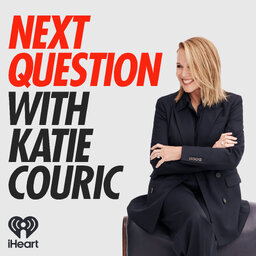Is there any stopping the spread of hate online?
NOTE: This episode contains discussions of racist ideologies and hate-based violence. Listener discretion is advised.
Sam (not his real name) was just 13 when he discovered a meme-focused online forum during a lonely time at school. His new friends there were more than happy to share their disturbing views about race and women with him, and Sam, looking for acceptance, was more than happy to listen. Except the more he listened, the more he started to believe what they had to say.
On this episode of Next Question, Katie sits down with Sam and his mom to talk about what it was like to get sucked into the far right online, then gets an expert’s take on how the internet is contributing to the rise of white nationalism—and the white nationalist violence we saw play out in places like Pittsburgh and El Paso. She also speaks to Angela King, a former neo-Nazi who works with extremists hoping to leave the far right behind, about how to help vulnerable young people navigate a world in which hate is always just a few clicks away.
Learn more about your ad-choices at https://www.iheartpodcastnetwork.com
 Next Question with Katie Couric
Next Question with Katie Couric


